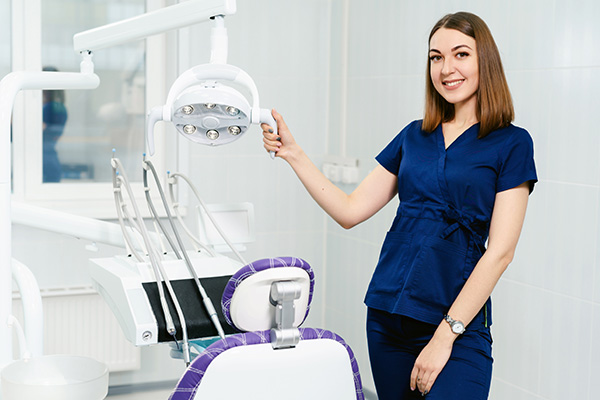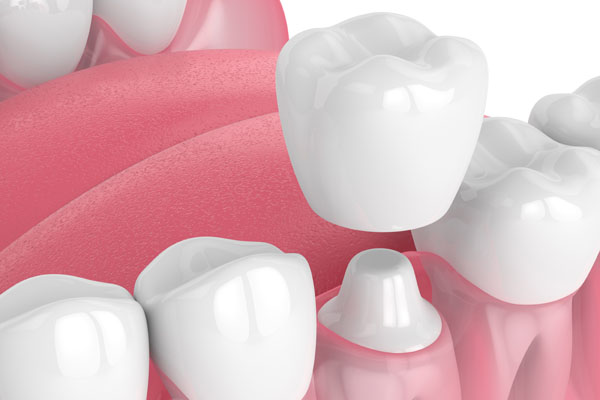Dental Crowns as a Cosmetic Dentistry Solution

Dental crowns are arguably the most used restorations in cosmetic dentistry. A crown is a cap that goes over the visible part of a tooth. It covers the tooth in its entirety, restoring its appearance as well as its function. Crowns also serve as a protective barrier that keeps teeth under them safe from irritants in the mouth like oral bacteria, acids and saliva.
Crowns are used in cosmetic dentistry to tackle a wide range of issues, like:
- Teeth that have turned gray due to tooth decay
- Deformed teeth
- Short teeth
- Gaps between teeth
- Broken, fractured or chipped teeth
How crowns are fitted in cosmetic dentistry
The installation of a dental crown is a permanent procedure that cannot be reversed. It requires the removal of about 1-2mm of tooth enamel. This creates a better fit for the crown. The dentist will then push an impression on the patient's tooth or use digital images to create a 3D model of the tooth. The impression and data are sent to dental technicians who create the patient's customized crown in a lab.
The dentist will fit the patient with a temporary crown to protect their tooth while their crown is being made. Temporary crowns are typically made out of plastics and they are created on-site. It can take up to two weeks for the customized crown to be ready.
During the second appointment, the dentist will remove the temporary crown and place the customized crowns. Adjustments will be made as needed. Crowns can be color-matched with the patient's teeth so the customized crown should blend right in. It covers up any flaws on the tooth and restores the patient's ability to chew with it.
The popular types of crowns used in cosmetic dentistry are:
- Porcelain dental crowns: These crowns provide the best aesthetics as they have the translucence of natural teeth. They also have a similar texture to real teeth. It allows these crowns to blend in with the patient's teeth, making them a great option for front teeth. The main downside of these types of crowns is the fact that they are the least durable type. They are typically not an option for teeth that regularly handle heavy bite forces like the molars
- Porcelain fused to metal: These crowns combine some of the properties of metal crowns — which are the most durable type of crown — and porcelain crowns. They provide the wearer with a natural-looking tooth while the metal base increases its durability. These types of crowns typically require the dentist to remove a larger portion of enamel
- Metal alloys: Crowns can also be made with alloys that contain mostly silver, gold or platinum. These are the most durable types of crowns, but they do not blend in with real teeth. Gold crowns are the most durable type of crown and they do not wear down adjacent teeth like porcelain crowns. These types of crowns are great for back teeth or for people who like the aesthetics of having crowns made from precious metals
Ready for a dental crown?
Call or visit our Everett clinic to learn more about how dental crowns can improve the way your teeth look as well as function.
Request an appointment here: https://gkdentaloffice.com or call GK Dental PC at (617) 826-6075 for an appointment in our Everett office.
Check out what others are saying about our services on Yelp: Read our Yelp reviews.
Recent Posts
Dental restorations have been used for thousands of years. In fact, a 2012 article published by The New York Times details the discovery of a 6,500-year-old human jawbone. Considered the earliest evidence of dental fillings, it had beeswax in one tooth, which researchers believe was to ease the pain of a crack. These days, restorations…
Crowns are commonly used in dental restorations. A crown is a cap shaped like a tooth but hollow in the middle. It fits over a natural tooth that has to be prepared first. Depending on the issue it is correcting, a crown can be used by itself or as a component of another restoration technique.Teeth…
Regular dental checkups are vital to keeping your teeth and gums healthy. You should visit your family dentist at least once every six months. This includes both adults and children alike. Routine dental appointments are essential for good oral health and they offer many important benefits.Tartar removal is an important step in dental appointments that…
Restorative dentistry refers to any type of dental procedure that a dentist performs to restore a damaged or missing tooth. Dental restorations can encompass several procedures that vary in terms of invasiveness, complexity, and what they can accomplish. However, the overreaching goal of all restorative procedures is to improve the health, function, and appearance of…


